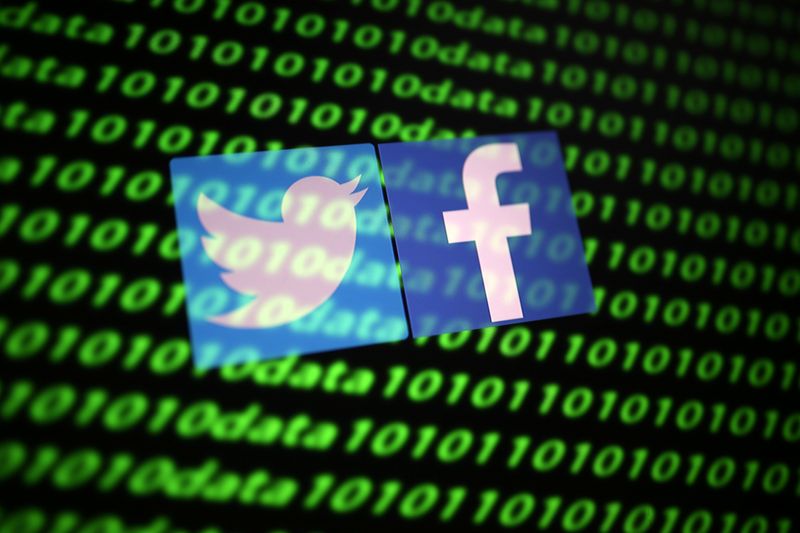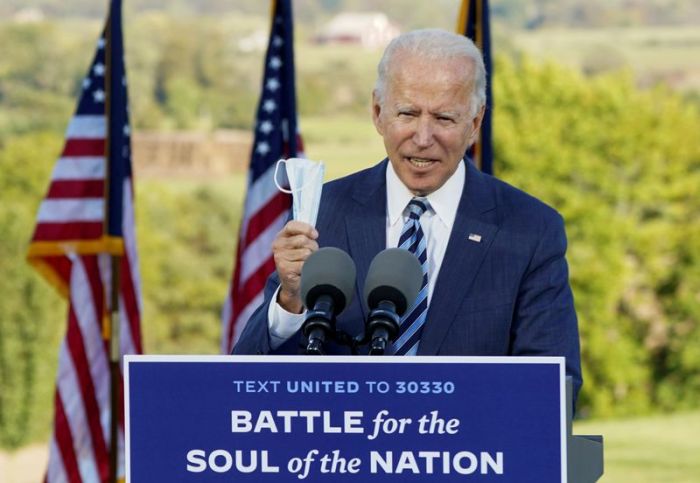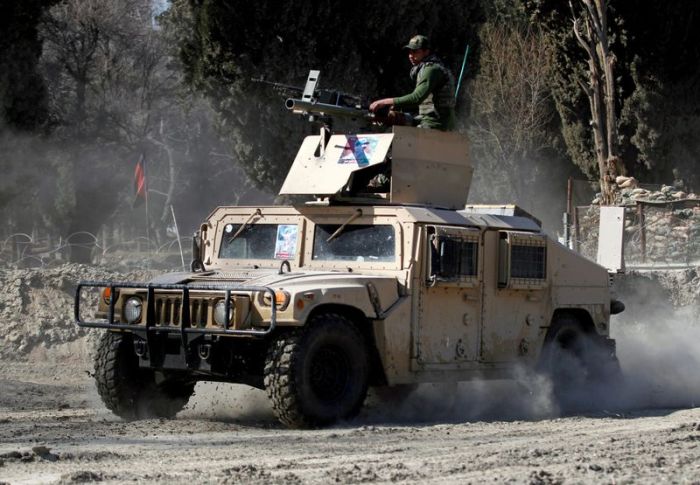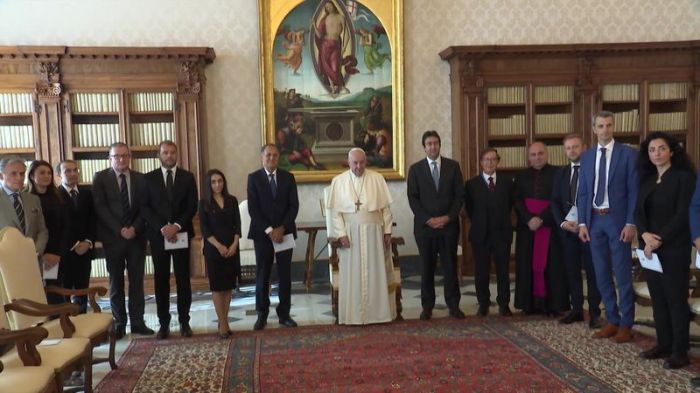LONDON/WASHINGTON (Reuters) – Facebook Inc <FB.O> and Twitter Inc <TWTR.N> said on Thursday they had taken down more than a dozen disinformation networks used by political and state-backed groups in multiple countries to deceive users on their platforms.
In separate statements, the two companies said they had identified and suspended more than 3,500 accounts between them, which used fake identities and other deceptive behaviors to spread false or misleading information.
The networks targeted users in a wide selection of countries, including the United States where officials have warned that foreign governments are attempting to influence the outcome of November’s presidential election.
After coming under heavy fire for failing to stop alleged Russian efforts to sway the 2016 U.S. election, Facebook and Twitter have announced a string of high-profile takedowns in the weeks leading up to this year’s presidential vote.
In multiple cases, the social media companies have worked with U.S. law enforcement to track and dismantle political influence campaigns targeting U.S. voters which have been attributed to foreign states, most notably Iran and Russia.
Tehran and Moscow have repeatedly denied the allegations.
The takedowns announced on Thursday covered networks with a global reach far beyond the U.S. election. The operations targeted Internet users in at least 16 other countries ranging from Azerbaijan to Nigeria and Japan, Facebook and Twitter said.
Twitter said the five networks it had suspended were separately linked to groups with ties to the governments of Iran, Saudi Arabia, Cuba, Thailand and Russia.
“Our goal with these disclosures is to continue to build public understanding around the ways in which state actors try to abuse and undermine open democratic conversation,” the company said in a statement.
Facebook said it had found 10 networks, some of which it had previously identified publicly. The networks were predominantly tied to political groups who targeted domestic audiences, it said, including the Myanmar military and the youth wing of Azerbaijan’s ruling party.
“Deceptive campaigns like these raise particularly complex issues by blurring the line of a healthy public debate and manipulation,” said Nathaniel Gleicher, Facebook’s head of cybersecurity policy.
Facebook also banned a U.S. marketing firm named Rally Forge, which it said had worked with conservative activism organization Turning Point USA and a self-proclaimed environmental body called Inclusive Conservation Group.
Accounts controlled by Rally Forge attempted to influence public conversations around news events by flooding the comments section of news articles from prominent outlets, Facebook said.
The Washington Post has reported that Turning Point USA was responsible for a “spam-like” political messaging campaign, which pumped out 4,500 tweets containing identical content. At the time, Twitter suspended 20 accounts and Facebook said it would investigate the activity.
Turning Point said the allegations related to a separate entity. “The mistake has been flagged with Facebook’s communication team,” it said in a statement.
Messages left with Rally Forge and its Phoenix area-based president, Jake Hoffman, were not immediately returned. Reuters was unable to reach representatives for Inclusive Conservation Group.
(Additional reporting by Raphael Satter in Washington; Editing by David Gregorio)





















